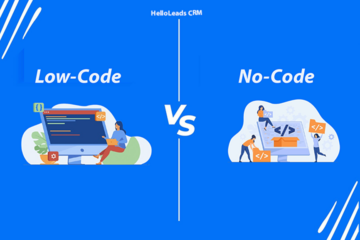
“The first rule of any technology used in a business is that automation applied to an efficient operation will magnify the efficiency. The second is that automation applied to an inefficient operation will magnify the inefficiency.” – Bill Gates
A Customer Relationship Management (CRM) system is an integral part of a business’s operations, especially for small businesses that have limited resources and rely heavily on managing customer relationships. A CRM system helps your business manage its customer interactions, track customer data, and analyze customer behavior to make informed decisions.
However, as businesses grow and evolve, your CRM systems can become outdated, leading to data discrepancies, lost information, and increased operational inefficiencies. To ensure that your small business is making the most of its CRM system, it may be time for a CRM audit.
In this blog, we will walk you through what is a CRM audit, processes to consider during a CRM audit and how to perform a CRM audit.
What is a CRM audit?

A CRM (Customer Relationship Management) audit is a systematic evaluation of an organization’s CRM system, processes, and data to identify areas of improvement and ensure that the CRM is being used effectively and efficiently. The aim of a CRM audit is to evaluate how well the CRM supports the overall goals and strategies of the organization and to identify any areas for improvement.
The results of a CRM audit can help you to optimize your CRM strategy, improve your use of the system, and make data-driven decisions that lead to better customer satisfaction and increased sales.
Key elements to consider during a CRM audit
Reporting: Evaluates the reporting capabilities of the CRM system to ensure that meaningful and actionable data is being generated.
Project Management: Looks at the ongoing improvements and quality of periodic reviews of the CRM system to ensure it is updated and optimized.
Governance: Ensures that the CRM system complies with relevant regulations and standards, such as GDPR, to protect customer data.
Gaps: Identifies areas where the CRM system is lacking and needs improvement to meet the organization’s needs.
Business Metrics: Reviews key business metrics to evaluate the performance of the CRM system and make informed decisions.
Utility: Evaluates the usefulness and value of the data stored in the CRM system to support key business decisions.
Employee Satisfaction: Measures the level of satisfaction of the sales team and stakeholders with the CRM system to identify areas for improvement.
Data Assessment: Reviews the data processing and data quality within the CRM system to ensure accurate and reliable information is being used.
How to perform CRM audit?
1 . Define the scope of the audit
The first step in performing a CRM audit is to define the scope of the audit, including the systems and processes that will be reviewed, the goals of the audit, and the timeline for completion.
2 . Gather data
Gather data related to your CRM system, including information about the configuration, data quality, user adoption, integration with other systems, and alignment with business processes. This data can be gathered through surveys, interviews, and system logs.
3 . Evaluate configuration
Evaluate the configuration of your CRM system, including user access and roles, custom fields, and workflows. Ensure that the configuration meets your business requirements and is aligned with your organizational structure.
4 . Assess data quality
Assess the quality of your CRM data, including accuracy, completeness, and timeliness. Check for duplicates, missing information, and outdated data, and take steps to correct any issues.
<5 . Evaluate user adoption
Evaluate the adoption of your CRM system by your sales team members. Track usage and identify areas where users may need additional training.
6 . Evaluate integration
 ” class=”wp-image-11802″/>
” class=”wp-image-11802″/>Evaluate the integration of your CRM system with other systems, such as marketing automation, ERP, and financial systems, to ensure that data is being exchanged seamlessly between systems.
7 . Assess process alignment
Assess how your organization is using your CRM system to support its business processes, including sales, marketing, and customer service processes. Evaluate whether the processes are aligned with your business goals and delivering maximum value.
8 . Prepare report:
The final step is to prepare a report that summarizes the results of the CRM audit, including findings, recommendations, and action items. Share the report with relevant persons and develop a plan to address any issues identified during the audit.
To conclude
By performing a CRM audit, small businesses can gain a better understanding of the performance of their CRM system and identify areas for improvement. A CRM audit need not be a complex or time-consuming process. By following a structured approach, small businesses can perform a CRM audit quickly and effectively, without disrupting their day-to-day operations. Whether you are using a cloud-based CRM system or an on-premise solution, a CRM audit can help to ensure that your system is delivering the results which you require to grow your business.
Share this blog :










